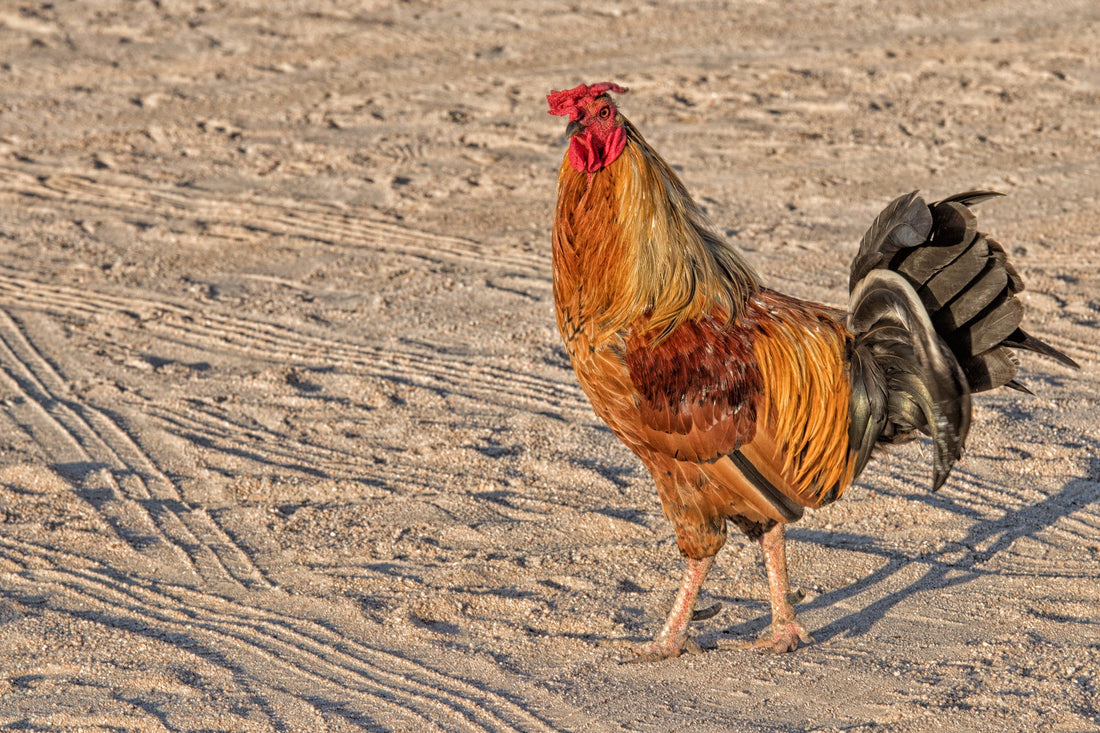In the vibrant tapestry of Caribbean and Creole cultures, folklore serves as a rich reservoir of traditions, beliefs, and narratives passed down through generations. Among the myriad characters and motifs that populate these oral traditions, the humble chicken emerges as a ubiquitous figure, its presence woven into the fabric of everyday life and mystical lore. In this captivating exploration, we'll journey into the heart of Caribbean and Creole folklore to uncover the multifaceted role of chickens, exploring their symbolic significance, cultural associations, and enduring legacy in the collective imagination of the region.
The Sacred Fowl: Symbolism and Spiritual Significance
In Caribbean and Creole folklore, chickens hold a sacred place as symbols of fertility, prosperity, and protection. Revered for their ability to provide sustenance in the form of eggs and meat, chickens are often associated with abundance and vitality in traditional belief systems. Additionally, chickens are believed to possess spiritual powers, with their crowing and clucking thought to ward off evil spirits and bring blessings to the household. In many Caribbean and Creole cultures, rituals involving chickens are performed for various purposes, including healing, divination, and ceremonial sacrifice, underscoring the deep spiritual connection between humans and these feathered creatures.
Fowl Play: Superstitions and Omens
Beyond their spiritual significance, chickens are also steeped in superstitions and omens in Caribbean and Creole folklore. The behavior and appearance of chickens are closely observed for signs and portents, with certain actions believed to foretell future events or provide guidance in times of uncertainty. For example, the direction in which a chicken scratches the ground, the number of eggs laid in a nest, or the color of a chicken's feathers may all be interpreted as omens with implications for luck, fortune, and fate. Additionally, the crowing of a rooster at specific times of the day or night is often regarded as an augury, with different interpretations depending on the context and circumstances.
Chickens in Ritual and Ceremony: From Birth to Burial
In Caribbean and Creole cultures, chickens play a central role in various rituals and ceremonies that mark important milestones in life. From birth to burial, chickens are present at key moments, symbolizing blessings, protection, and continuity. For example, in some Caribbean communities, chickens are included in baby naming ceremonies as offerings to the spirits for the child's health and well-being. Similarly, chickens may be sacrificed as part of marriage ceremonies to ensure the couple's fertility and prosperity. Even in death, chickens have a role to play, with their feathers often used in funeral rites to guide the departed soul to the afterlife.
Legends of the Cockfight: Battling Spirits and Rivalry
One of the most enduring motifs in Caribbean and Creole folklore is the legend of the cockfight, a ritualized combat between two roosters that symbolizes bravery, strength, and honor. Rooted in ancient traditions and influenced by African, European, and indigenous beliefs, cockfights are more than mere spectacles of bloodsport; they are seen as symbolic contests between good and evil, with the victorious rooster believed to vanquish malevolent spirits and bring blessings to its owner. Cockfighting is also imbued with notions of social status and rivalry, with owners investing time, money, and prestige in breeding and training their birds for battle.
The Trickster Hen: Tales of Wit and Wisdom
In Caribbean and Creole folklore, chickens are not only revered for their spiritual significance but also celebrated for their wit and cunning in folktales and fables. The trickster hen, often depicted as a clever and resourceful character, outwits predators, solves problems, and navigates tricky situations with humor and ingenuity. These tales, passed down through oral tradition, serve as moral lessons and reflections of human nature, highlighting the importance of intelligence, resourcefulness, and perseverance in the face of adversity. Whether outsmarting a sly fox or escaping the clutches of a hungry predator, the trickster hen embodies the resilience and resourcefulness of the Caribbean and Creole spirit.
Chickens in Song and Dance: Musical Metaphors of Life
In addition to their roles in folklore and ritual, chickens also feature prominently in the music and dance traditions of the Caribbean and Creole cultures. From calypso to reggae, from zouk to merengue, references to chickens abound in the lyrics and rhythms of Caribbean music, serving as metaphors for life, love, and social commentary. Whether celebrating the joys of rural life, lamenting the hardships of poverty, or poking fun at societal norms, songs featuring chickens capture the vibrancy and diversity of Caribbean culture, inviting listeners to join in the clucking chorus of life's eternal dance.
From Cock-a-Doodle-Doo to Cockfight Chorus: Celebrating Chicken Lore
The chicken's role in Caribbean and Creole folklore is as diverse and dynamic as the cultures that embrace it. From sacred symbols of fertility and protection to mischievous tricksters and musical muses, chickens occupy a unique place in the collective imagination of the region, weaving a rich tapestry of tradition, belief, and storytelling. Whether crowing at dawn, scratching in the yard, or strutting in the cockfight ring, the chicken continues to inspire and captivate with its timeless tales of feathered wonder.

